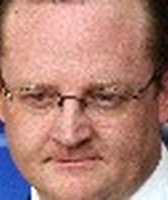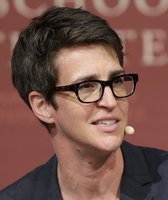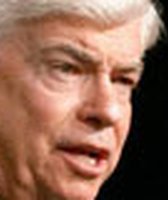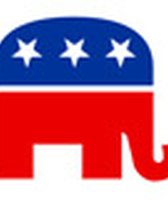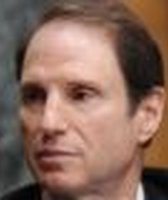Stand up for the facts!
Our only agenda is to publish the truth so you can be an informed participant in democracy.
We need your help.
I would like to contribute
SUMMARY: Iran's unwillingness to suspend its nuclear energy program has some concerned that nuclear weapons may be on the horizon. But the presidential candidates oversimplify and overstate what's known about the threat.
Sen. John McCain's harsh rhetoric about Iran veered into the realm of outright falsehood recently. As we show in this Truth-O-Meter ruling , McCain claimed "every objective observer" believes the country is pursuing nuclear weapons, when the facts say otherwise.
But McCain is hardly alone in overstating the case against the Islamic country.
"Iran is a grave threat. It has an illicit nuclear program," Sen. Barack Obama said on May 19.
That implies Iran is secretly seeking nuclear weapons, which may or may not be the case. U.S. intelligence agencies believe the country had an illicit weapons program in the past, but halted it in 2003.
Sign up for PolitiFact texts
The candidates' allegations against Iran follow even more provocative accusations from President Bush, who has reportedly launched covert operations inside Iran.
"They've declared they want to have a nuclear weapon to destroy people – some in the Middle East," Bush said in a March 19 interview on U.S.-funded Radio Farda, which broadcasts into Iran in Farsi.
The White House later said Bush had "shorthanded" the Iran president's alleged desire to "wipe Israel off the map."
Iranian leaders have not declared they want a nuclear weapon – in fact, quite the contrary. Officials there steadfastly deny they want nuclear weapons, and say the country's supreme leader believes they are forbidden under Islam.
Why the confusion? Because whether or not Iran wants to build nuclear weapons, it appears to be close to acquiring the ability to do so. Once a country has mastered uranium enrichment – which Iran claims to have done, and is legal under international law – it can build a nuclear bomb without too much more difficulty.
"In military strategy there's a principle that you don't worry about an enemy's statements as much as you worry about their potential," said Juan Cole, a Middle East expert at the University of Michigan who supports Obama and has been a critic of Bush's policies.
Iran's nuclear program dates back 30 years, when the country was governed by Shah Mohammad Reza Pahlavi, a monarch friendly to the West. The country was prohibited from developing nuclear weapons under the 1970 Treaty on the Non-Proliferation of Nuclear Weapons , a global accord that allows nations to develop nuclear energy.
Declassified documents show that in the 1970s the United States supported Iran's efforts, even offering to sell it a U.S.-built facility to produce nuclear-reactor fuel. In 1979, however, the shah was toppled by an Islamic revolution unfriendly to the United States, and the new government abandoned the nuclear program, saying it made no economic sense.
"They repudiated it as a ridiculous idea from the shah," said Ivan Oelrich, a nuclear physicist and vice president for strategic security programs at the Federation of American Scientists. "It sat for over 10 years."
With the help of Russian scientists, however, Iran resumed its efforts in secret. Iranian officials say they kept the program covert so the United States would not try to stop it, but there is widespread concern in the United States and elsewhere that the Iranians hid their efforts because they were primarily interested in developing nuclear weapons.
The program was exposed in 2002, and since then the International Atomic Energy Agency (IAEA) – a Vienna-based organization tasked by the United Nations with verifying that governments are living up to the Non-Proliferation Treaty – has been trying to verify that absence of a nuclear-weapons program, past or present, in Iran.
The IAEA declared in 2005 that Iran's history of concealing nuclear activities constituted a breach of the Non-Proliferation Treaty. The agency said "good progress has been made in Iran's correction of the breaches," but there was an "absence of confidence that Iran's nuclear program is exclusively for peaceful purposes."
The U.N. Security Council responded by demanding in 2006 that Iran suspend all enrichment-related activities. Iran has refused to do so, saying that would amount to abandoning its right to peaceful nuclear technology.
Iranian officials have repeatedly said that the country's Supreme Leader, Ayatollah Ali Khamenei, issued a fatwa, or religious edict, in 2005 stating that the production, stockpiling and use of nuclear weapons are forbidden under Islam. The text of the fatwa has eluded experts, but influential Iranian clerics have echoed it.
"Islam bans shedding blood of nations; on the same ground, production of nuclear bomb and even thinking on its production are forbidden from Islamic point of view," said Ayatollah Mohammad Emami Kashani, a cleric and member of Iran's powerful Guardian Council, in a sermon at Tehran University in November 2007, according to the Islamic Republic News Agency .
The U.S. intelligence community said in a National Intelligence Estimate in November that it believed Iran had a nuclear weapons program but halted it in 2003 in response to international pressure.
The latest word from the IAEA came in a May 26 report , in which the agency pressured Iran for more transparency. It said that although it could account for all of Iran's declared nuclear material, and it had no proof of a current weapons program, Iran had not fully answered a number of outstanding questions, especially about its past efforts.
"At this stage, Iran has not provided the agency with all the information, access to documents and access to individuals necessary to support Iran's statements," about the peaceful nature of its nuclear program, the IAEA reported.
Iran is actively enriching uranium, the IAEA reported, though the group said Iran has not mastered the process. Once a nation can enrich uranium to the level required to fuel a nuclear reactor, it can – without too much more time and effort – enrich it to the level required to fuel a bomb.
"The Israelis think it can happen this year or next year," said David Albright, a former U.N. weapons inspector in Iraq and current president of the Institute for Science and International Security in Washington. "The U.S. intelligence community thinks it may happen two or more years from now."
At that point, Iran would be 75 percent of the way to a bomb – the only challenge, if it wanted to do so, would be making a warhead small enough to fit on a ballistic missile, Albright said.
Albright said the IAEA inspections system is not as strong as it should be, and has loopholes that Iran could exploit. But he also said it was "not helpful" for officials like McCain to overstate the case against Iran.
"We don't want to be worked up into a hysteria about an imminent threat when there may not be one," Albright said.
Looming over all the back and forth is the specter of a military strike on Iran's nuclear facilities by the United States or Israel. ElBaradei has repeatedly discouraged that.
"In my opinion, a military strike will be the worst," the IAEA's ElBaradei told Dubai-based Al-Arabiya TV on June 21. "It will turn the Middle East to a ball of fire."
Our Sources
2008Central.net, McCain Virtual Town Hall With Independents and Democratic Voters in Florida , June 24, 2008
National Intelligence Council, National Intelligence Estimate. Iran: Nuclear Intentions and Capabilities , November 2007
The Hill's Briefing Room, Obama: Iran is a Grave Threat Because of Bush Policy , May 19, 2008
The New Yorker, Preparing the Battlefield , July 7, 2008
Radio Free Europe/Radio Liberty, President Bush Talks to Radio Farda , March 20, 2008
Mehr News Agency, Iran's Statement at IAEA Emergency Meeting , August 10, 2005
Interview with Juan Cole, professor of history at the University of Michigan, May 28, 2008
United Nations, Treaty on the Non-Proliferation of Nuclear Weapons , March 5, 1970
Washington Post, Past Arguments Don't Square With Current Iran Policy, March 27, 2005
Interview with Ivan Oelrich, vice-president for strategic security programs at the Federation of American Scientists, July 2, 2008
International Atomic Energy Agency, Implementation of the NPT Safeguards Agreement in the Islamic Republic of Iran , Sept. 24, 2005
United Nations Security Council, Security Council Demands Iran Suspend Uranium Enrichment by 31 August, or Face Possible Economic, Diplomatic Sanctions, July 31, 2006
Islamic Republic News Agency, Ayat. Kashani: N-bomb Production Religiously Forbidden , Nov. 9, 2007
International Atomic Energy Agency, Implementation of the NPT Safeguards Agreement and Relevant Provisions of Security Council Resolutions 1737 (2006), 1747 (2007) and 1803 (2008) in the Islamic Republic of Iran , May 26, 2008
Interview with David Albright, president of the Institute for Science and International Security, July 3, 2008
Al Arabiya, Iran Attack to Turn Region Into Fireball: ElBaradei, June 21, 2008
McClatchy Newspapers, Bush Erroneously Says Iran Announced Desire for Nuclear Weapons, March 20, 2008









